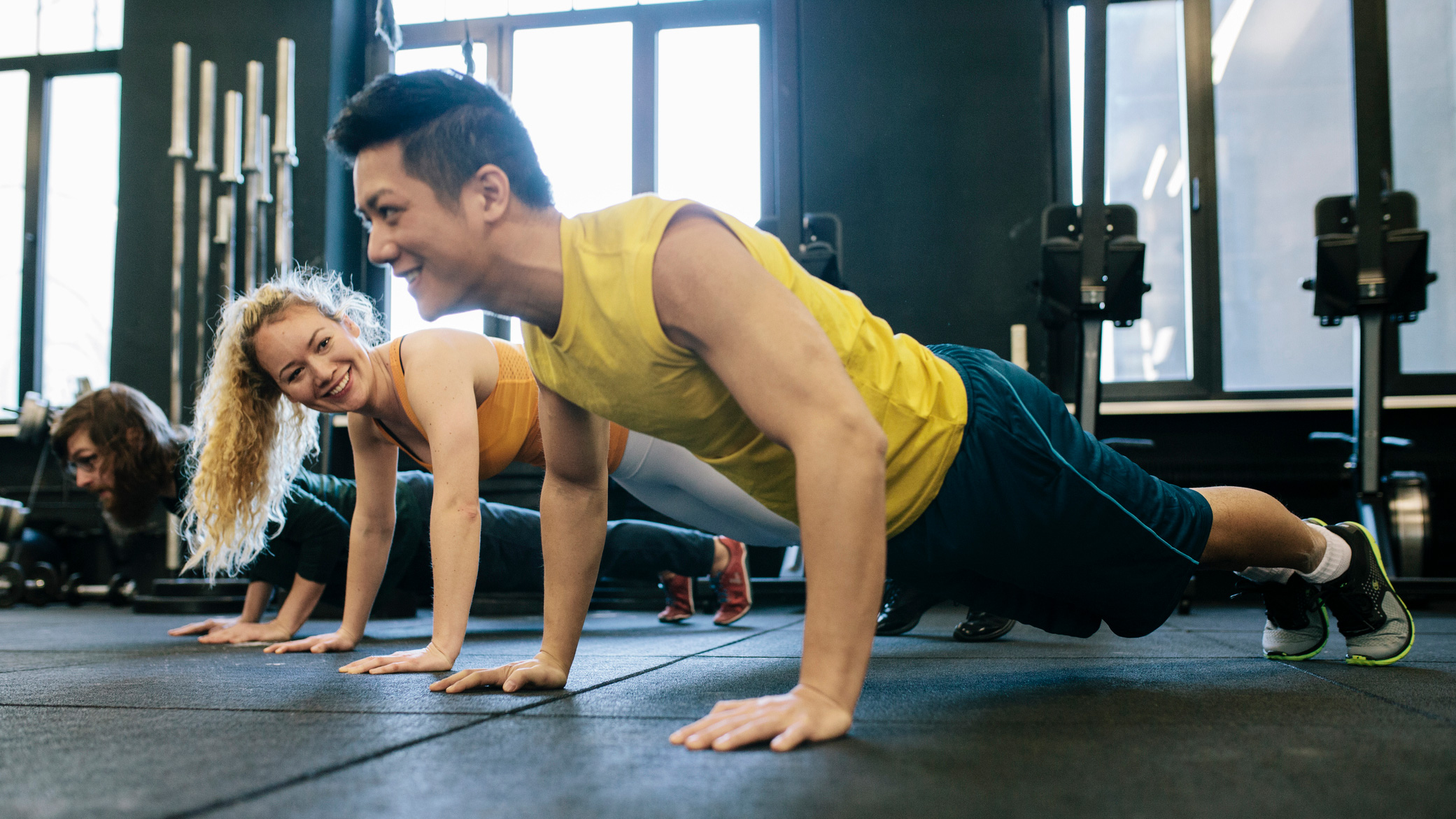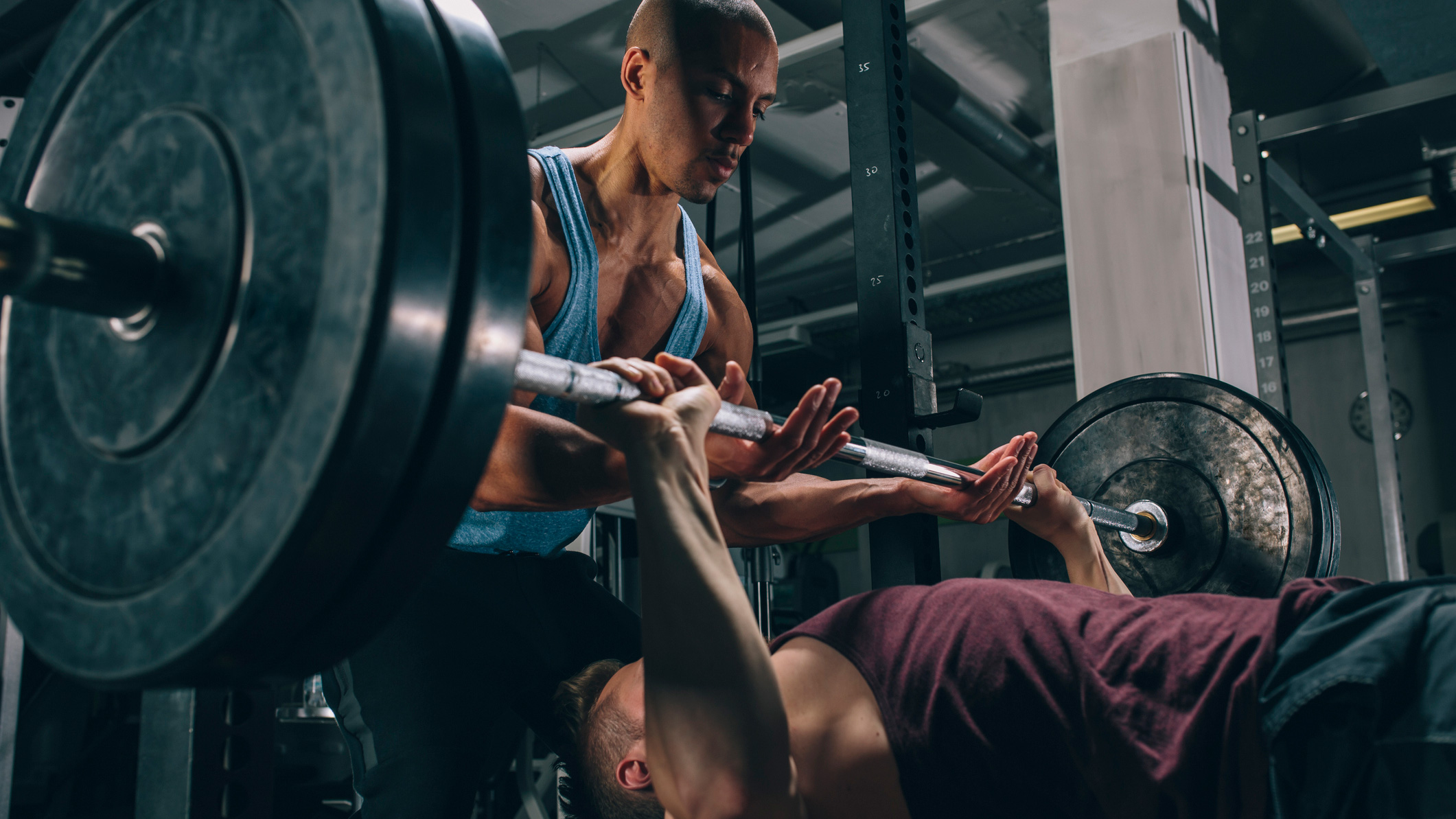Study says push-ups can build muscle just as well as lifting weights. Time to ditch the gym?
Research has shown that after four weeks of training, calisthenics can build muscle just as well as weights


If you're looking to build muscle, you might be looking at the weights rack in the gym with trepidation. There's a lot of equipment on offer there, but some of it is dangerous if used improperly, and it's often the province of large people making a lot of noise – which can be intimidating for any beginner.
However, if you think this is your only option when it comes to building muscle, think again – a research paper has concluded that calisthenics, or bodyweight exercises, can build muscle just as efficiently as lifting weights, whether that's a heavy bar or the best adjustable dumbbells.
This research comes from the Journal of Strength and Conditioning Research, and examined the performance of two groups of people after four weeks of training. One group's training focused on push-ups, while the other focused on the barbell bench press – the exercise consisting of lying down and pushing a heavy bar upwards. Both of these exercises work your pectoral muscles, triceps, and shoulders, so they're pretty comparable.
After four weeks, the results were very similar between the two groups. Both groups had similar increases in strength, performing more push-ups and benching more weight. This proves you don't have to lift weights to gain muscle – at least in the first four weeks.

However, there are some differences between the exercises. Push-ups can be made easier or harder by adjusting the angle of your own body: get onto your knees or do them on a bench to make things easier, or move your hands to make things harder, emphasizing different muscle groups such as your arms by bringing your hands closer together. You can check out some of these variations in our how to do a push-up guide.
You can do a push-up nice and slow, creating more time under tension, or faster to crank out loads of reps. Crucially, they're also a safer exercise than lifting heavy weights, and you can do them anytime, anywhere. As the researchers write: "This study is the first to demonstrate that calisthenics, using different progressive variations to maintain strength training programming variables, can improve upper-body muscle strength."
To make a bench press harder, all you do is add more weight. There is no limit to how heavy you can theoretically go – after a certain point, your body will be very used to doing push-ups, whereas you can always put your muscles under more stress when you bench. Push-ups don't make the bench press obsolete – in fact, the two exercises complement each other very well. If you'd like to try it, check out our guide on how to do a bench press for more information.
Start your week with achievable workout ideas, health tips and wellbeing advice in your inbox.
So in the end, bodyweight moves – whether it's squats, pull-ups, push-ups or something else – can grow your muscles just as well as weight training in the early stages of lifting, so you never have to worry about being away from the gym to make gains. However, if you want to challenge yourself by lifting even heavier weights, the gym is the place to be.
Of course, all this muscle-building means you need to fuel your body correctly to help it recover and grow. Our best protein powder for weight loss list can help keep you lean while still providing enough protein content to help your muscles repair themselves after a tough workout.
Matt Evans is an experienced health and fitness journalist and is currently Fitness and Wellbeing Editor at TechRadar, covering all things exercise and nutrition on Fit&Well's tech-focused sister site. Matt originally discovered exercise through martial arts: he holds a black belt in Karate and remains a keen runner, gym-goer, and infrequent yogi. His top fitness tip? Stretch.
